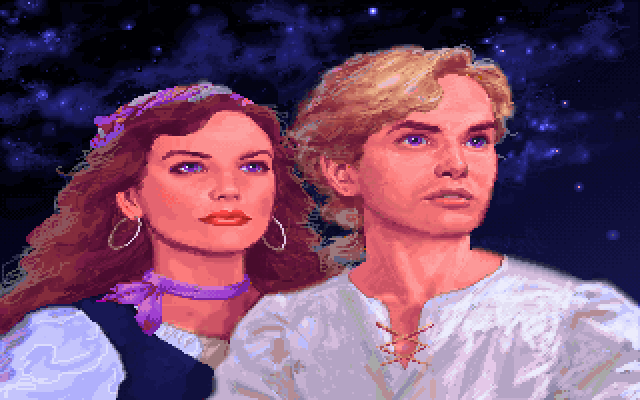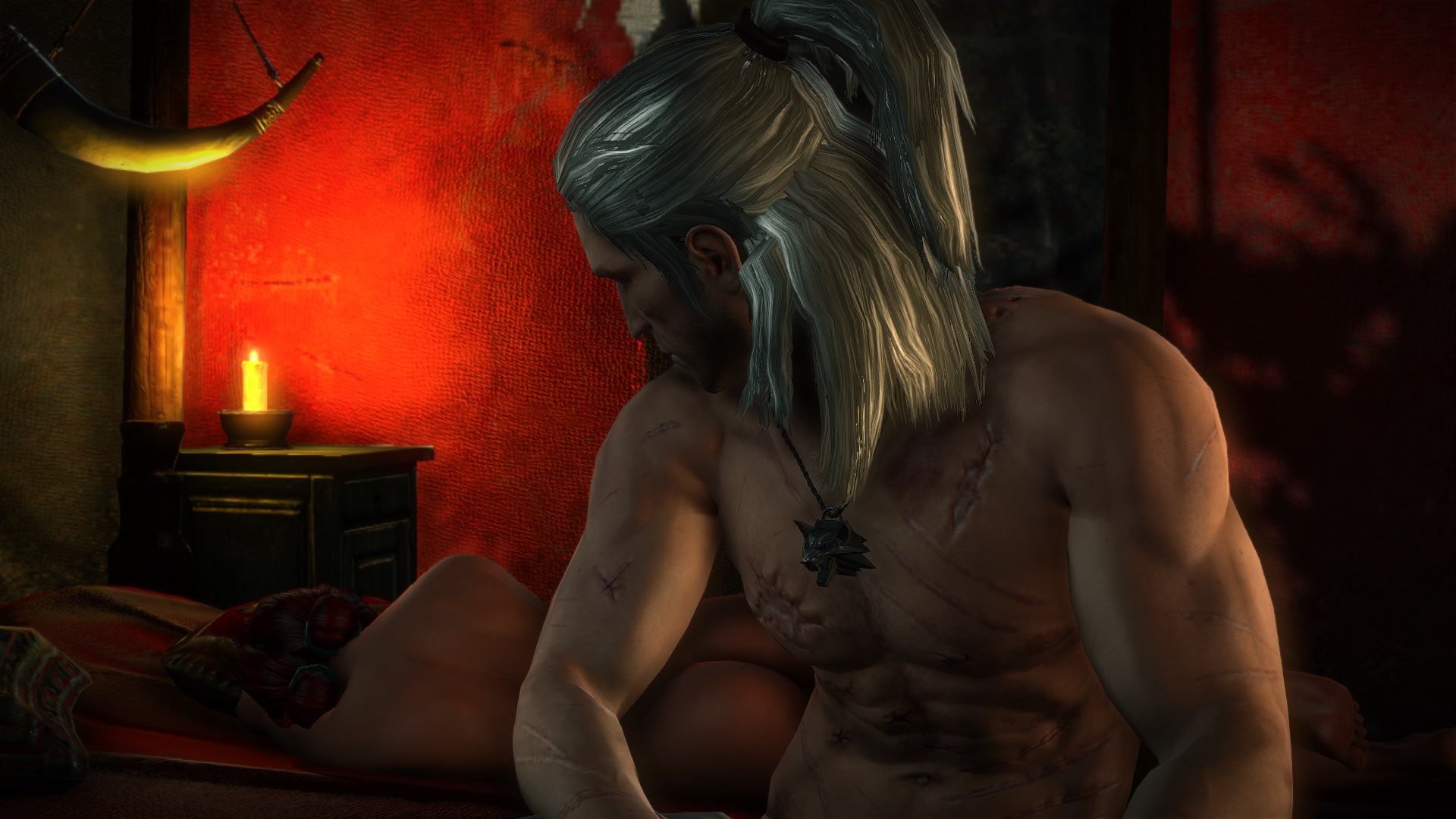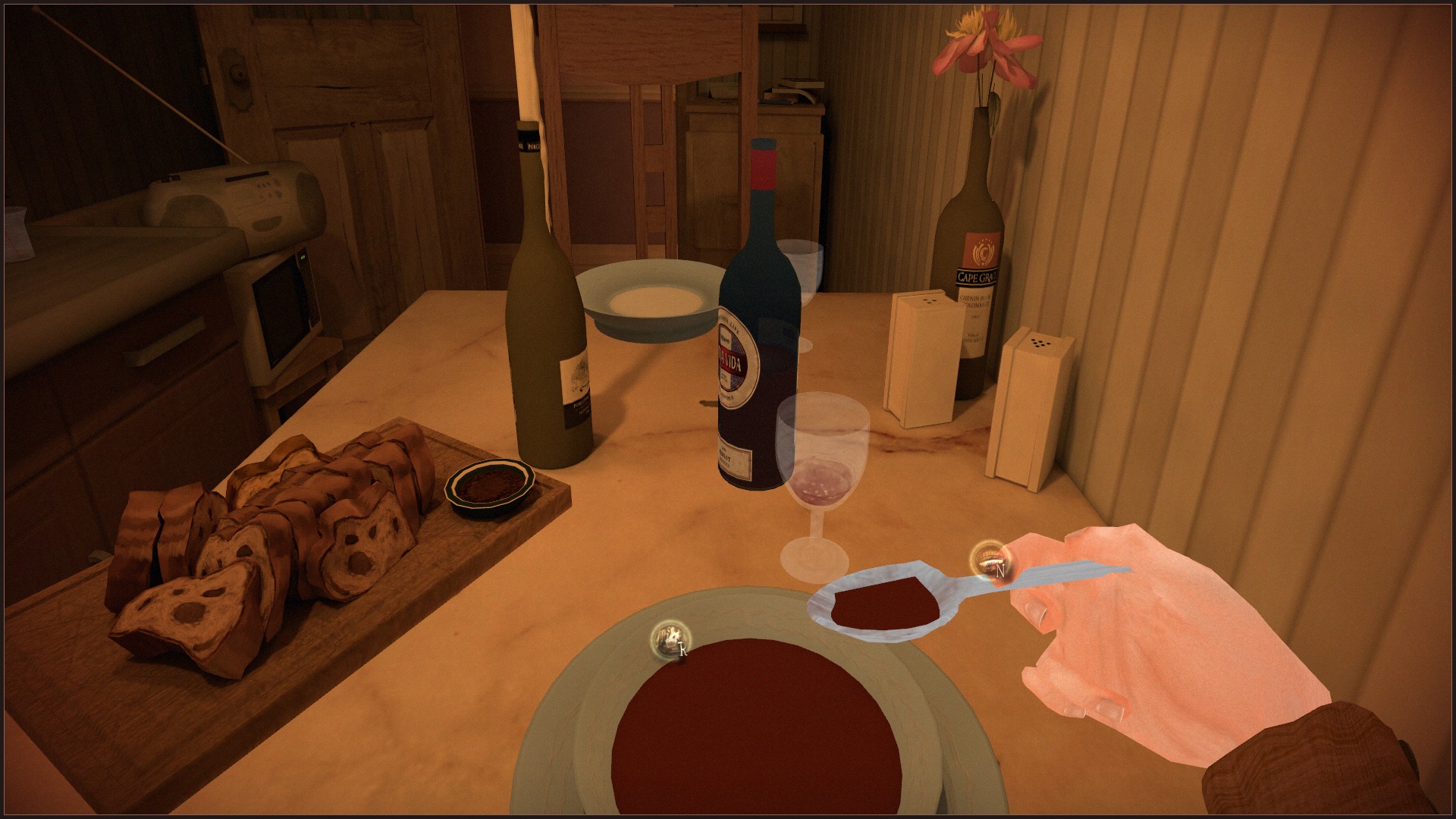For The Love Of NPCs

Every week, Richard Cobbett writes about the world of story and writing in games.
Ah, the variable joys of the Valentine's Day weekend. Yesterday, love was in the air. Today, well, I assume it's crashing down to the ground like so many dead pigeons. Splattering on the ground in pools of blood and maggots. A festering smell rising into the nostrils of the righteous and unrighteous alike.
Ahem.
Love is one of the games industry's biggest narrative holy grails. Originally, a common designer goal was to make something that could make people cry, and not in a Daikatana way. After a couple of scenes like the death of Aerith in Final Fantasy VII, that was officially marked off the To-Do list. It might not happen very often, and you may not personally have shed a tear, but obviously it's possible. If people can cry at a movie or a book, there's no reason a narratively driven game singing from a similar hymnbook can't fondle the same neurons. After that though came a new broad goal, and one more focused on what games could do - to create a character that players could actually fall in love with. This became somewhat more literal in Japan than in most places, but it's been a decent challenge to shoot for and one that encapsulates a number of narrative goals - in particular, writing characters that the player generally likes and would enjoy hanging out with even if the world wasn't doomed.
It's not enough for instance to have a sexy character that people can jokingly refer to as their 'waifu'. The industry is bursting with oversexed Amazons and lady space marines in bikini power armour and all of that nonsense. That can work as eye-candy, and a good character is a good character whatever they're wearing. It tends to be more grounded characters where sentiment gets to live on after the game though; the April Ryans rather than the Lara Crofts. Connection is an emotional bond first and foremost, built with empathy, with humour, with voice, with philosophy, and of course, with flaws. Far too many writers still think that the path to likability is perfection, but of course it isn't. Perfection is cold, distant, unreachable. When you get a character trying to present that, like Miranda in the Mass Effect series, it's usually creepy.

The problem with an emotional connection is that it has to be bi-directional, even if one of the parties involved is just a lump of pixels and code. Romance in games is usually embarrassing to witness because it can never be spontaneous and messy; under the fantasy, you know full well that it's flags being fired and friendship meters and quiet moments doled out with an eye for pacing. It's also usually a goal orientated thing to levels that can go from simply cold to outright stalkery - in Dragon Age Inquisition for instance, your base at Skyhold is almost overtly a catalogue of potential romantic interests, while games that obsfucate the steps to get to the inevitably shit sex scene at the end can become almost disturbing war campaigns, and those that take things simply do no better with "HERE ARE FLOWERS DO THE SEX NOW."
Even when all is said and done, it's little but making two dolls kiss. Even if one of the participants is "you", you're not a participant so much as a puppet-master, paying for a peep-show with time instead of coins. Perhaps at some point games will be integrated enough to trigger releases of oxytocin, prolactin and other key hormones, but for the moment it's an inherently clinical, dispassionate, nervous grinding where the biggest reward usually comes from an Achievement box popping up at exactly the wrong moment. Very few in-game sex scenes wouldn't be better off just doing a fade out instead of the usual underwear-clad petting.
Yet despite this, some games do make it work. The Witcher 2 for instance features an excellent in-game sex scene between hero Geralt and the sorceress Triss, in stark contrast to the awful way it handled that kind of stuff in the first game. Dragon Age Inquisition likewise manages to do some fun ones, with no Inquisitor likely to forget a night spent riding the Iron Bull. There are other examples too, of course.
The biggest gaming news, reviews and hardware deals
Keep up to date with the most important stories and the best deals, as picked by the PC Gamer team.
What's the difference? A couple of things. Firstly, most of the successful examples combine humour as well as sexiness - in The Witcher 2 for instance, Triss does her magic strip-tease sequence, but there's also the playful connection between her and Geralt as she pulls him into a bathing pool. The ones that don't use humour at least have something to replace it, to ground the scene in something emotive. All of the good ones though stretch beyond the scene itself, making it a point on a journey rather than the destination. Original Dragon Age for instance has Alistair's nervousness, and the political ramifications of love later on. While ludicrously tame by modern standards, the mid-point of Leisure Suit Larry 3 features the titular loser finally finding true love with someone who shares it, only to have his heart immediately broken again.

What pretty much every example also offers though is two characters. To actually fall in love with a character is a difficult thing for many reasons - the innate knowledge that they don't exist, their inability to reciprocate or even respond, the many mechanical things that get in the way. However, none of this gets in the way of a different human instinct - to help, to bring people together, to make people you care about happy. Caring about a character is a very different thing to being in love with them, with every cliffhanger and long-running book series and action figure standing as a commercial testament to that. Empathy is simply a part of enjoying spending time with them. It's what makes us root for them as they try to save the world, as they're betrayed, as they discover their place in the world - the true threat of any epic story has nothing to do with the villain destroying the world, but breaking the characters.
Games have long understood this, and used it well. The original example (though one that I've always felt has been repeated far more than actually experienced) is having to order your robot buddy Floyd to do something that will destroy him so that you can escape. More recently of course, games like The Walking Dead have focused so heavily on this that they've not really needed the conventional puzzles associated with the adventure genre - the general goal of protecting/preparing Clementine was enough to carry the whole first series, just as watching another member of the group slowly self-destruct ultimately proved enough for the second.
Bringing this back to romance, what marks most successful attempts is that us-as-players rarely get the focus, versus the characters themselves. We might drive them, we're in control, but almost inevitably they have a personality of their own. That might be overt, or it might have developed more naturally by earlier choices, but they still exist as something beyond 'you'. The process of choice, of seduction, of dealing with any ramifications therefore becomes something more akin to helping a friend find love with someone who's good for them. That produces enough of a chemical squirt to feel good, in much the same way that an Achievement at least triggers some feeling of achievement, and lets you watch the show.

At absolute minimum, the character being seduced has to get something out of it beyond a fun night - someone who's lonely for instance, or needs comforting, rather than someone to act as the comforter for a player who is never going to be sufficiently invested in the game. It's one thing to face the end of the universe when that's it, that's all there is in your future. It never works as well when you can press Alt-Tab and go play Gravity Ghost or something for a bit instead. We only care about that stuff to the extent that it affects the main characters both on and off-screen, with exactly the same empathy that makes it feel nice to see them happy.
That's probably going to be the full extent of it for the foreseeable future, except on Tumblr of course, and honestly that's probably for the best. It can be bad enough to be separated from a loved one by distance or circumstance, without being painfully aware that they're trapped and bound by code in a parallel universe. The basic goal of falling in love remains a good one though. Even if it is impossible without actually building the Star Trek holodeck, the main step towards it is a worthy and valuable one - through writing, technology, AI and more, the quest to create characters worthy of falling in love with, as well as to lead, follow and accompany on endless exciting journeys.

